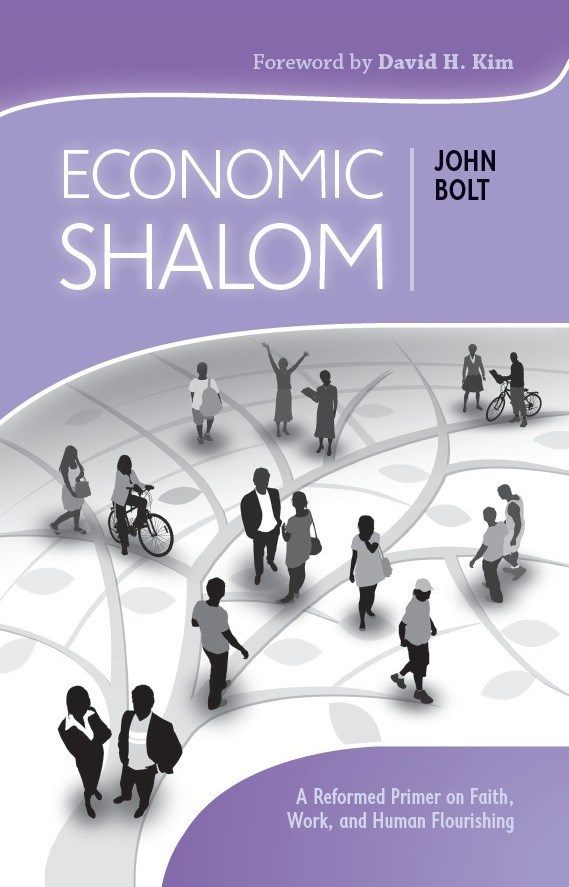“A Christian society is not going to arrive until most of us really want it: and we are not going to want it until we become fully Christian… I cannot learn to love my neighbour as myself till I learn to love God: and I cannot learn to love God except by learning to obey Him.” –C.S. Lewis
In Economic Shalom, John Bolt’s Reformed primer on faith, work, and economics, he includes a chapter on how we might understand flourishing in the social order through “a biblical understanding of the human person, created in God’s image and living in God’s world.”
Bolt reviews a variety of different areas and approaches, providing a firm critique of top-down social planners who, in their attempts to impose utopia, far too often impede, distort, or destroy the positive manifestations of organic and spontaneous order that already exist, whether in churches, schools, businesses, communities, or the family. That’s not to say such planners don’t have some role to play or vocation to fulfill, but it must be constrained accordingly and focused toward that which is productive and possible.
As political theorist Kenneth Minogue explains: “We could never produce a crystal by directly placing [i.e., mechanically] the individual molecules from which it is built up. But we can create the conditions under which such a crystal will form itself. . . . Similarly, we can create the conditions under which a biological organism will grow and develop” (507–8).
As Christians, Bolt argues, we have something particular to contribute in each of these areas, from the love in our hearts to the work of our hands to the worship in our churches. Thus, the good of society is furthered when we create the conditions wherein these activities and relationships can emerge and excel.
What, then, are the conditions we should aim to create and cultivate in hopes of such an outcome? What are the conditions for human flourishing wherein we might align our activities in obedience to God and within a Christian context of the good, the true, and the beautiful?
 First, at the individual level:
First, at the individual level:
At the individual and “part” level, we can make it rather simple by saying that flourishing comes from heeding God’s laws. The so-called “second table of the law”—commandments five through ten—are a good place to start. Societies where people don’t as a rule rebel against authority; where they eschew violence; don’t cheat on spouses, neighbors, or the IRS; speak truthfully and use honest weights and measures; as well as give an honest day’s work and are content—such a society will be blessed and will flourish. And, we should add, so will societies that honor marriage between free men and women and support the families they produce.
Next, as it pertains to the social order:
Here, in keeping with our understanding of human dignity based on the image of God, we must affirm social and political orders where coercion is minimized and responsible moral agents are given full liberty to act and to form free associations with other human beings. Liberty is the condition sine qua non for flourishing and humane societies. Societies that shortchange liberty may achieve certain immediate goals that are attractive, but they will not flourish or last.
Let us be clear here. The description of the conditions for a flourishing society assumes something that cannot be taken for granted: This is a society under God. Here the wisdom of Dutch neo-Calvinism and its emphasis on sphere sovereignty is of great help to us. As Abraham Kuyper envisioned a flourishing society, he understood that the various “spheres”—“the family, the business, science, art and so forth”—“do not owe their existence to the state, and . . . do not derive the law of their life from the superiority of the state,” but exist because of God’s creative and providential power and, in the final analysis, are responsible to him alone (Lectures on Calvinism, 90–91). God’s law, therefore, must shape the conduct of life within the various “spheres,” and their liberty and independence under God are essential to human flourishing in society. To state it differently, worship of the true God, the God and Father of our Lord Jesus Christ, the Creator of heaven and earth, is the true key to human flourishing. And in a free society such as the United States of America this worship too may never be coerced; it is the task of the church to proclaim and invite people to experience such human flourishing by becoming part of the new society of Christ’s own body on earth.
For more, grab a copy of Economic Shalom.
For other tradition-specific primers on this topic, review the entire series from Christian’s Library Press.

